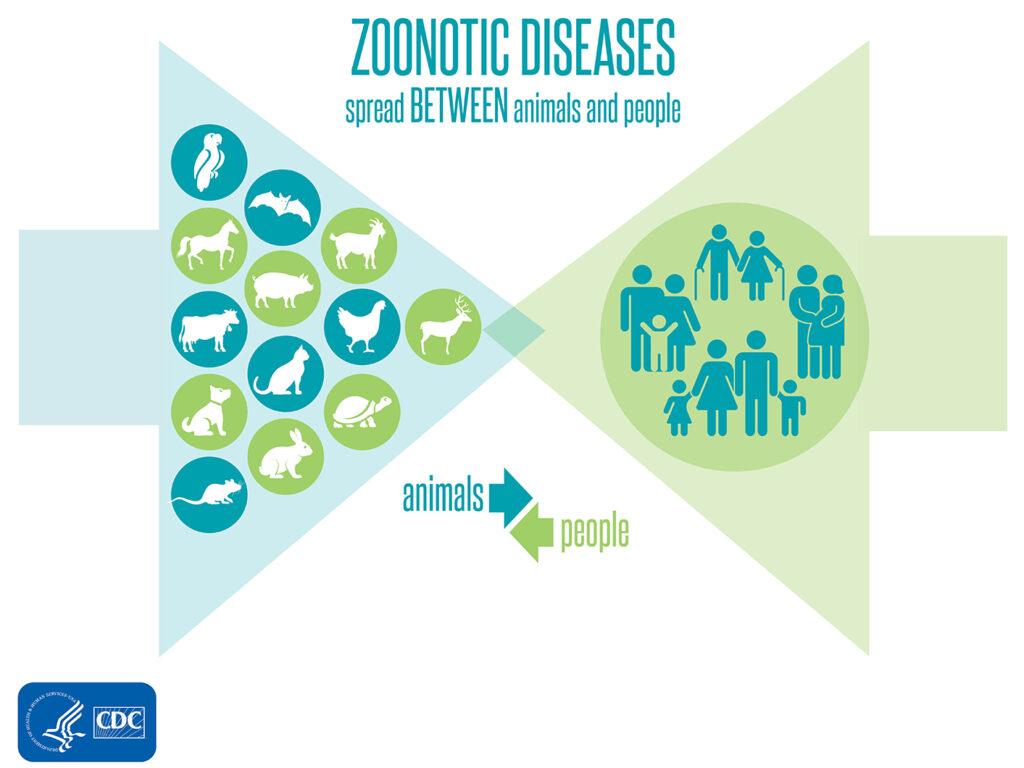The importance of this day has only increased in the light of developments in recent years, including the coronavirus pandemic and the unfolding monkeypox outbreak.
According to estimations, 60% of known infectious diseases and up to 75% of new or emerging infectious diseases are zoonotic in origin. There are over 200 known types of zoonoses, such as rabies, the plague, malaria, the Zika virus and so on.
Zoonotic diseases are caused by harmful germs like viruses, bacterial, parasites, and fungi. 76% of viruses, 50% of bacteria and 38% of fungi are known to cause disease in humans are zoonotic and can be transmitted between animals and humans. The diseases they cause can be mild or even asymptomatic, but can also lead to serious illness or death. Zoonoses can be transmitted in several ways, for example through the consumption of food from infected animals (meat, milk, eggs), directly or through vectors (e.g. mosquito or tick bites), or through the environment (contaminated water, soil).
The number of zoonoses is constantly increasing and more are expected to emerge. Not all zoonoses become pandemics, but most pandemics are caused by zoonoses. Climate change, loss of biodiversity, environmental degradation, etc. all increase the risk of new zoonoses.
Zoonoses are a major public health problem worldwide because of our close contact with animals in agriculture, companion animals and the natural environment. They can also cause disruption in food production and trade.
Zoonoses must be controlled using the One Health approach, which is based on the premise that human health depends on the health of animals and the environment.

